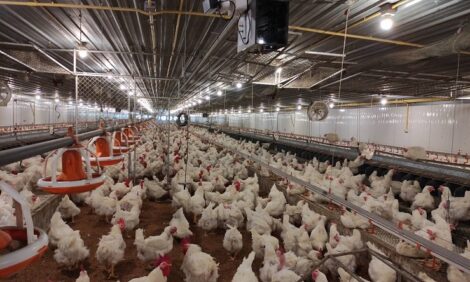



Researcher Reveals Campylobacter Insights Ahead of New Role
AUSTRALIA - A researcher has revealed insights into her time working with Campylobacter and genomics ahead of her time at the Poultry Cooperative Research Centre (Poultry CRC) in Australia.Time spent at Bioproperties and Eimeria Pty Ltd has provided Dr Karen Holden with many opportunities in Australia's poultry sector.
“My journey into poultry research started with a general interest of how things work, a passion for animal health, and a fascination with the natural world from a young age” she said. “After a degree in Biological Science (at La Trobe University) with a double major in Biochemistry and Microbiology, I moved to RMIT University to undertake an Honours project in human Medical Microbiology.
“I made knock-out mutants of Campylobacter jejuni in an attempt to understand which genes were important in how this bacterium produced lipooligosaccharides.
“I briefly worked as a research assistant on a project looking at drug resistance in malarial parasites before deciding that I wanted to go back to study to undertake a PhD. The change of universities turned out to be a good call, as this is where I met my now husband”.
Dr Holden completed her PhD (supported by the CRC) for Microtechnology in 2007 at RMIT University. Her PhD project involved investigating Campylobacter jejuni pathogenesis at a molecular level.
“This is where I learned that about 95 per cent of the time, research doesn’t produce instant, tangible results, and you need to be committed and positive to push through the quieter times to get a chance to celebrate the eureka moments (that can be few and far between)” she commented.
Remaining in the area of bacterial pathogens of importance to the poultry industry, Dr Holden undertook her first post-doc appointment at The University of Melbourne with support from the CRC.
She said: “In my time at Melbourne University, I designed and constructed a vaccine to protect chickens from avian pathogenic Escherichia coli infection and in amongst that I had my first child.
“Early last year I completed my second post-doc at the CSIRO Australian Animal Health Laboratory working on a vaccine to reduce colonisation of Campylobacter jejuni in poultry, again supported by the Poultry CRC. During my time with CSIRO, my second child came along. Along the way, I’ve made some good friends within the poultry research community.”








